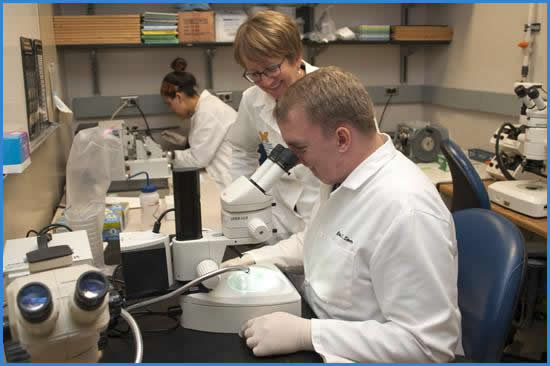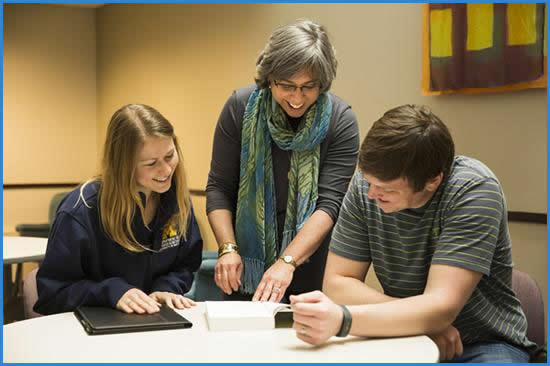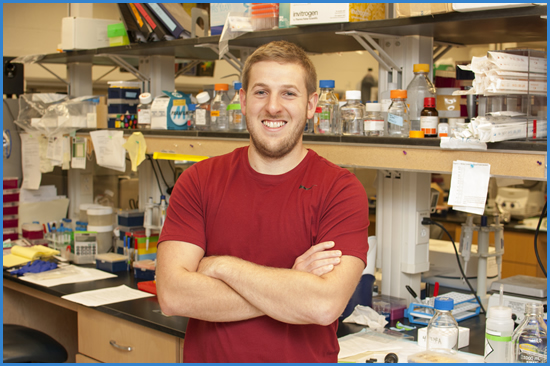The Ph.D. in Human Genetics is for students interested in training in scientific research in one of the several areas of focus within the Department. Understanding basic mechanisms is stressed for the unanticipated as well as expected benefits this knowledge will extend to human life. Topics of focus include gene regulation and replication, genome organization, developmental genetics, complex trait analysis, population and quantitative genetics, disease gene identification and molecular mechanisms of disease. Students apply to the Ph.D. program through the Program in Biomedical Sciences, except for students pursuing combined M.D. and Ph.D. degrees (Medical Scientist Training Program). After completion of required coursework, the doctoral dissertation is completed generally within 5 years of graduate study.
Human Genetics began as a field linking specific mutations to disease. Today human genetics has transformed to a far more diverse realm of study. Conceptual and technical innovations fuel discoveries in the molecular bases of complex diseases, organismal development, population dynamics, and genomic evolution.
Current research is multidisciplinary and diverse skills are necessary to translate the gains of research to our lives. Therefore graduate training in the Department of Human Genetics includes a set of programs with distinct goals, but each fuses breadth with depth and balances rigor with flexibility.
Ph.D. in Human Genetics

M.S. in Genetic Counseling

The M.S. degree in Human Genetics with an emphasis of genetic counseling is an option for students who are interested in clinical genetics. Graduate study in genetic counseling combines coursework in molecular and medical genetics and counseling techniques with mentored clinical internships and clinically oriented research projects. This 2-year course of study provides trainees with a broad knowledge base in basic, translational and applied genetics. Graduates work in a variety of settings, including adult, pediatric, and prenatal genetics clinics; specialty clinics such as cystic fibrosis, hemophilia, or cancer genetics; public health genetics programs; the biotechnology industry; and human genetics education outreach.
M.S. in Human Genetics

The field of Human Genetics has grown dramatically in recent years, in large part due to rapid advances in new technologies for discovery and the explosion of new data and resources. Human Genetics interfaces with multiple research and clinical disciplines, with new opportunities for those with advanced training in basic science, clinical diagnostics and industry. The Master's degree program (M.S.) in Human Genetics provides focused graduate training in both general and human genetics. It is designed for individuals seeking advanced training in genetics for employment or research opportunities or for matriculation to competitive Ph.D., M.D. or other advanced degree programs. The course of study can be completed in one year or extended over a longer time period.
The Human Genetics M.S. program includes both Research and Coursework-only tracks.
